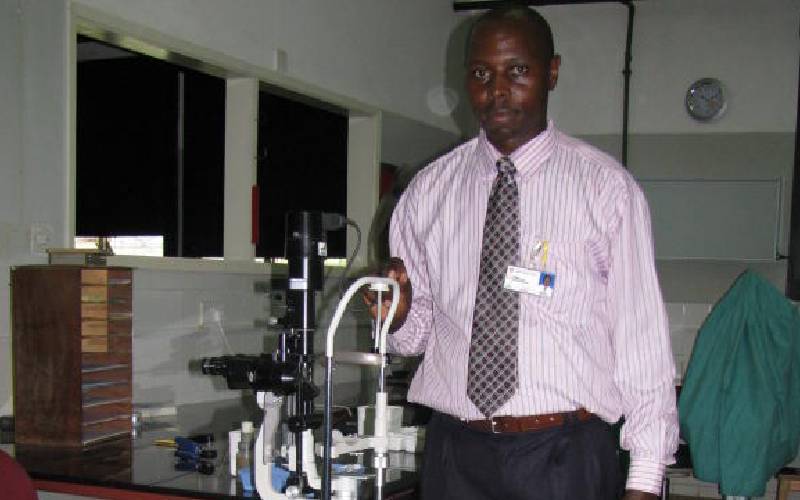
Patrick Kibe, an Ophthalmic Surgeon at Kijabe Mission Hospital. [Courtesy]
Patrick Kibe has risen from a cleaner, storekeeper, clinical officer to an ophthalmic cataract surgeon at Kijabe Mission Hospital.
An ophthalmic surgeon specialises in examining patients with eye diseases, diagnosing and prescribing medication and performing eye surgeries. Being a surgeon is a steep deviation from the norm for the third born of 10 children whose aspiration was to be a pastor.
Facts First
This story continues on The Standard INSiDER. Subscribe now for unfiltered journalism that holds power to account.
Already have an account? Login
 The Standard Group Plc is a multi-media organization with investments in media
platforms spanning newspaper print
operations, television, radio broadcasting, digital and online services. The
Standard Group is recognized as a
leading multi-media house in Kenya with a key influence in matters of national
and international interest.
The Standard Group Plc is a multi-media organization with investments in media
platforms spanning newspaper print
operations, television, radio broadcasting, digital and online services. The
Standard Group is recognized as a
leading multi-media house in Kenya with a key influence in matters of national
and international interest.











